|
|
|
|
As a definite mosquito magnet myself, I eagerly clicked on Jonathan Day’s article explaining why some people seem to be ignored by the little bloodsuckers, while others wind up covered with itchy bites. This was one of the last articles Mary Magnuson edited for The Conversation this summer. Embedded in our newsroom as one of the American Association for the Advancement of Science’s mass media fellows, Mary tracked down this medical entomologist at the University of Florida, commissioned him to write on this topic that our team was quite curious about and worked with him to make it an accessible and fun read. Currently the most popular article on our site, it breaks down the science of mosquito attraction.
Of course, various mosquito species can also transmit disease. I’m embarrassed to admit I had never heard of the second-most common mosquito-borne viral illness in the U.S. until I read University of Tennessee entomologist Rebecca Trout Fryxell’s article this past week. She describes the hard-to-diagnose symptoms of La Crosse disease and provides some tips on how to avoid the mosquitoes that carry the virus that causes it.
On a lighter note from the insect beat, have you ever wondered how ants defy gravity to walk up walls and even across ceilings? For our Curious Kids series, University of South Florida biologist Deby Cassill details ants’ “impressive toolbox of claws, spines, hairs and sticky pads on their feet that enable them to scale almost any surface.”
Also in this week’s science news:
If there’s a subject you’d like our team of science editors to investigate, please reply to this email.
|

|
Maggie Villiger
Senior Science + Technology Editor
|
|
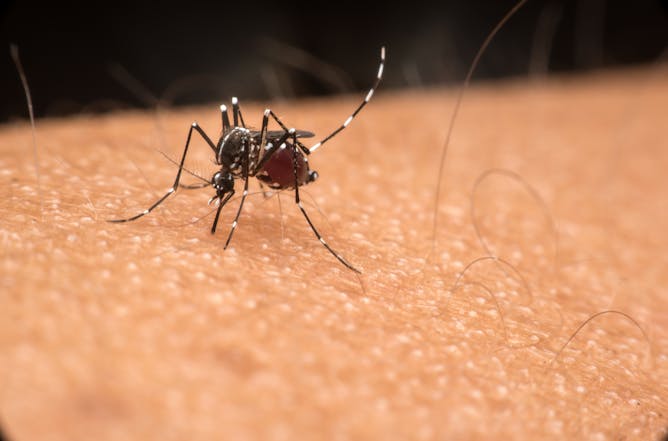
Mosquitoes need to feed on blood in order to reproduce. But how do they choose whom to feed on?
boonchai wedmakawand/Moment via GettyImages
Jonathan Day, University of Florida
Mosquitoes can track down potential hosts using the CO2 released by humans’ metabolic processes, a medical entomologist explains.
|
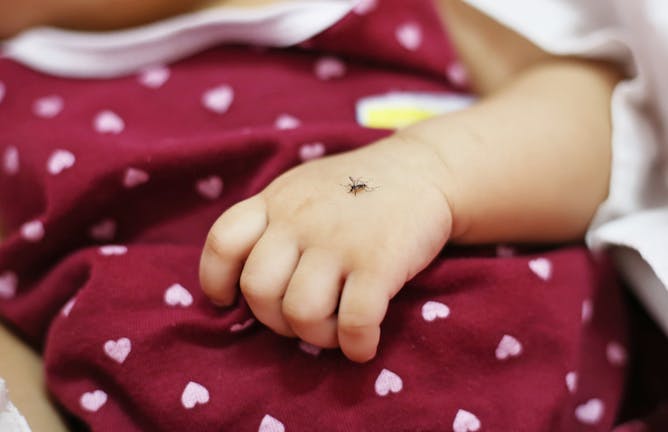
People catch La Crosse disease primarily from the bite of the eastern tree-hole mosquito – although two other species may also carry the virus.
Nipol Plobmuang/EyeEm via Getty Images
Rebecca Trout Fryxell, University of Tennessee
Not all cases of La Crosse disease affect the neurological system, but those that do can be severe and sometimes fatal – especially in children.
|
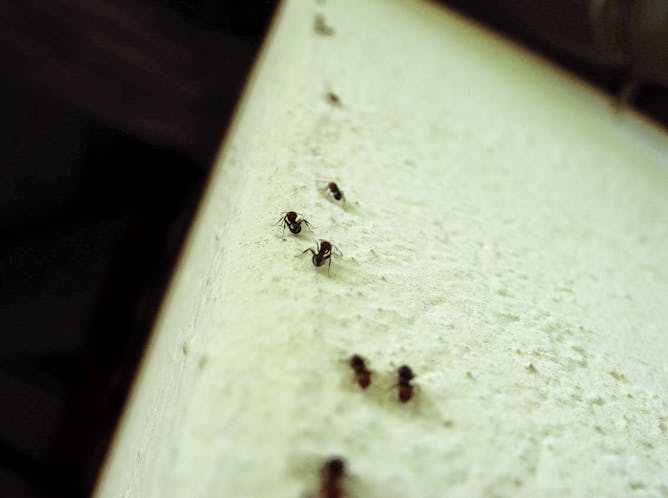
Walking vertically – or even upside down – is a piece of cake for ants.
pecchio/iStock via Getty Images Plus
Deby Cassill, University of South Florida
Ant feet are equipped with an array of tools – from retractable sticky pads to claws to special spines and hairs – enabling them to defy gravity and grip virtually any surface.
|
|
|

Hailiang Huang, Harvard University
Existing genetic data and sequencing tools are overwhelmingly based on people of European ancestry, which excludes much of the rich genetic variation of the world.
| |

Najmedin Meshkati, University of Southern California
The power plant’s sixth reactor has been shut down, all but eliminating the risk of a nuclear meltdown. But fighting at the site could still release radioactive material.
|
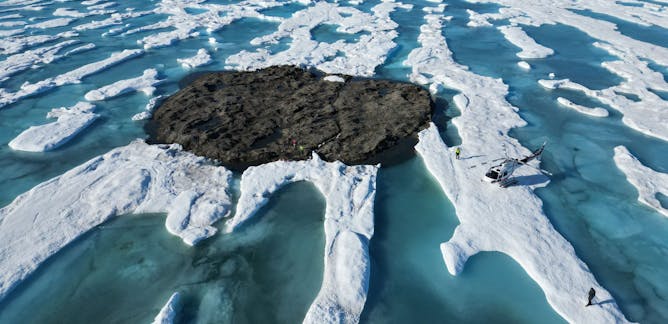
Kevin Hamilton, University of Hawaii
The new discovery echoes a mission in 1931, when a five-day zeppelin flight sent robots to the stratosphere and redrew the maps of the high Arctic.
| |
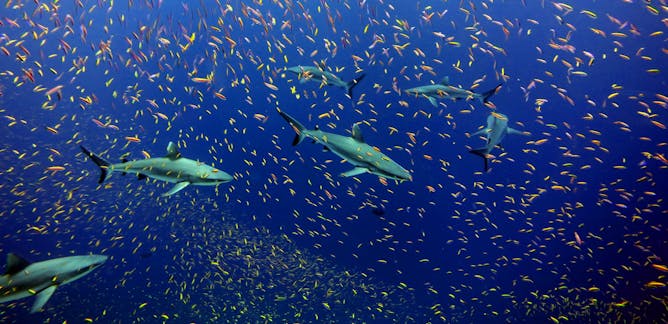
David Shiffman, Arizona State University
Sharks are much more severely threatened by humans than vice versa. A marine biologist explains how people can help protect sharks and why some strategies are more effective than others.
|
|
|
|
|
-
Scott Ruoti, University of Tennessee
Ethereum, one of the world’s largest blockchains and host of decentralized finance, NFTs and billions of dollars’ worth of cryptocurrency, is poised to dramatically reduce its energy consumption.
-
Julia Liu, Morehouse School of Medicine; RaKetra Snipes, Morehouse School of Medicine
Overcoming the access barriers and biases that underrepresented and underserved communities face could not only improve research participation but also improve care.
-
Hilary A. Marusak, Wayne State University
A new study provides the first glimpse into what happens in children’s brains as they meditate.
-
Jonathan Levy, Boston University
Natural gas has been marketed for decades as a clean fuel, but a growing body of research shows that gas stoves can contribute significantly to indoor air pollution, as well as climate change.
-
Paul Chinowsky, University of Colorado Boulder
A heat wave that pushed California’s power grid to the limit, and the water system failure in Jackson, Mississippi, are just two examples.
|
|
|
| | |
| | |
| |
| |
| |
|
|
|